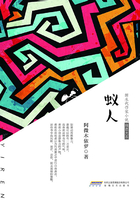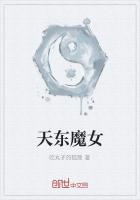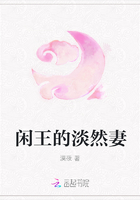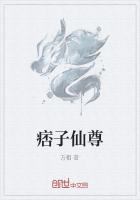Appearances, nevertheless, were calmer thanever, Rodolphe having succeeded in carrying out the *****ery after his ownfancy; and at the end of six months, when the spring-time came, they were toone another like a married couple, tranquilly keeping up a domestic flame.
It was the time of year when old Rouault senthis turkey in remembrance of the setting of his leg. The present always arrivedwith a letter. Emma cut the string that tied it to the basket, and read the followinglines:-
“MY DEAR CHILDREN-I hope this will find youwell, and that this one will be as good as the others. For it seems to me alittle more tender, if I may venture to say so, and heavier. But next time, fora change, I'll give you a turkey-cock, unless you havea preference for some dabs; and send me back the hamper, if you please, withthe two old ones. I have had an accident with my cart-sheds, whose coveringflew off one windy night among the trees. The harvest has not been overgoodeither. Finally, I don't know when I shall come to seeyou. It is so difficult now to leave the house since I am alone, my poor Emma.”
Here there was a break in the lines, as ifthe old fellow had dropped his pen to dream a little while.
“For myself, I am very well, except for acold I caught the other day at the fair at Yvetot, where I had gone to hire ashepherd, having turned away mine because he was too dainty. How we are to bepitied with such a lot of thieves! Besides, he was also rude. I heard from apedlar, who, travelling through your part of the country this winter, had atooth drawn, that Bovary was as usual working hard. That doesn't surprise me; and he showed me his tooth; we had some coffeetogether. I asked him if he had seen you, and he said not, but that he had seentwo horses in the stables, from which I conclude that business is looking up.So much the better, my dear children, and may God send you every imaginablehappiness! It grieves me not yet to have seen my dear little grand-daughter,Berthe Bovary. I have planted an Orleans plum-tree for her in the garden underyour room, and I won't have it touched unless it is tohave jam made for her by and bye, that I will keep in the cupboard for her whenshe comes.
“Good-bye, my dear children. I kiss you, mygirl, you too, my son-in-law, and the little one on both cheeks. I am, withbest compliments, your loving father.
“THEODORE ROUAULT.”
She held the coarse paper in her fingers forsome minutes. The spelling mistakes were interwoven one with the other, andEmma followed the kindly thought that cackled right through it like a hen halfhidden in the hedge of thorns. The writing had been dried with ashes from thehearth, for a little grey powder slipped from the letter on to her dress, andshe almost thought she saw her father bending over the hearth to take up thetongs. How long since she had been with him, sitting on the footstool in thechimney-corner, where she used to burn the end of a bit of wood in the greatflame of the sea-sedges! She remembered the summer evenings all full ofsunshine. The colts neighed when anyone passed by, and galloped, galloped.Under her window there was a beehive, and sometimes the bees wheeling round inthe light struck against her window like rebounding balls of gold. What happinessthere had been at that time, what *******, what hope! What an abundance ofillusions! Nothing was left of them now. She had got rid of them all in hersoul's life, in all her successive conditions of life,maidenhood, her marriage, and her love- thus constantly losing them all herlife through, like a traveller who leaves something of his wealth at every innalong his road.
But what then, made her so unhappy? What wasthe extraordinary catastrophe that had transformed her? And she raised herhead, looking round as if to seek the cause of that which made her suffer.
An April ray was dancing on the china of thewhatnot; the fire burned; beneath her slippers she felt the softness of thecarpet; the day was bright, the air warm, and she heard her child shouting withlaughter.
In fact, the little girl was just thenrolling on the lawn in the midst of the grass that was being turned. She waslying flat on her stomach at the top of a rick. The servant was holding her byher skirt. Lestiboudois was raking by her side, and every time he came near shelent forward, beating the air with both her arms.
“Bring her to me,”said her mother, rushing to embrace her. “How I loveyou, my poor child! How I love you!”
Then noticing that the tips of her ears wererather dirty, she rang at once for warm water, and washed her, changed herlinen, her stockings, her shoes, asked a thousand questions about her health,as if on the return from a long journey, and finally, kissing her again andcrying a little, she gave her back to the servant, who stood quitethunderstricken at this excess of tenderness.
That evening Rodolphe found her more seriousthan usual. “That will pass over,” he concluded; “it'sa whim.”
And he missed three rendezvous running. Whenhe did come, she showed herself cold and almost contemptuous.
“Ah! you're losingyour time, my lady!”
And he pretended not to notice her melancholysighs, nor the handkerchief she took out.
Then Emma repented. She even asked herselfwhy she detested Charles; if it had not been better to have been able to lovehim? But he gave her no opportunities for such a revival of sentiment, so thatshe was much embarrassed by her desire for sacrifice, when the druggist camejust in time to provide her with an opportunity.
Chapter 11
He had recently read a eulogy on a new methodfor curing club-foot, and as he was a partisan of progress, he conceived thepatriotic idea that Yonville, in order to keep to the fore, ought to have someoperations for strephopody or club-foot.
“For,” said he toEmma, “what risk is there? See-” (and he enumerated on his fingers the advantages of the attempt), “success, almost certain relief and beautifying of the patient,celebrity acquired by the operator. Why, for example, should not your husbandrelieve poor Hippolyte of the 'Lion d'Or'? Note that he would not fail to tellabout his curé to all the travellers, and then” (Homais lowered his voice and looked round him) “who is to prevent me from sending a short paragraph on the subjectto the paper? Eh! goodness me! An article gets about; it is talked of; it endsby ****** a snowball! And who knows? who knows?”
In fact, Bovary might succeed. Nothing provedto Emma that he was not clever; and what a satisfaction for her to have urgedhim to a step by which his reputation and fortune would be increased! She onlywished to lean on something more solid than love.
Charles, urged by the druggist and by her,allowed himself to be persuaded. He sent to Rouen for Dr. Duval's volume, and every evening, holding his head between both hands,plunged into the reading of it.
While he was studying equinus, varus, andvalgus, that is to say, katastrephopody, endostrephopody, and exostrephopody(or better, the various turnings of the foot downwards, inwards, and outwards,with the hypostrephopody and anastrephopody), otherwise torsion downwards andupwards, Monsier Homais, with all sorts of arguments, was exhorting the lad atthe inn to submit to the operation.
“You will scarcely feel, probably, a slightpain; it is a ****** prick, like a little blood-letting, less than theextraction of certain corns.”
Hippolyte, reflecting, rolled his stupideyes.
“However,” continuedthe chemist, “it doesn'tconcern me. It's for your sake, for pure humanity! Ishould like to see you, my friend, rid of your hideous caudication, togetherwith that waddling of the lumbar regions which, whatever you say, mustconsiderably interfere with you in the exercise of your calling.”
Then Homais represented to him how muchjollier and brisker he would feel afterwards, and even gave him to understandthat he would be more likely to please the women; and the stable-boy began tosmile heavily. Then he attacked him through his vanity:
“Aren't you a man?Hang it! what would you have done if you had had to go into the army, to go andfight beneath the standard? Ah! Hippolyte!”
And Homais retired, declaring that he couldnot understand this obstinacy, this blindness in refusing the benefactions ofscience.
The poor fellow gave way, for it was like aconspiracy. Binet, who never interfered with other people's business, Madame Lefrancois, Artemise, the neighbours, even themayor, Monsieur Tuvache- everyone persuaded him, lectured him, shamed him; butwhat finally decided him was that it would cost him nothing. Bovary evenundertook to provide the machine for the operation. This generosity was an ideaof Emma's, and Charles consented to it, thinking in hisheart of hearts that his wife was an angel.
So by the advice of the chemist, and afterthree fresh starts, he had a kind of box made by the carpenter, with the aid ofthe locksmith, that weighed about eight pounds, and in which iron, wood,sheer-iron, leather, screws, and nuts had not been spared.
But to know which of Hippolyte's tendons to cut, it was necessary first of all to find out whatkind of club-foot he had.
He had a foot forming almost a straight linewith the leg, which, however, did not prevent it from being turned in, so thatit was an equinus together with something of a varus, or else a slight varuswith a strong tendency to equinus. But with this equinus, wide in foot like ahorse's hoof, with rugose skin, dry tendons, and largetoes, on which the black nails looked as if made of iron, the clubfoot ranabout like a deer from morn till night. He was constantly to be seen on thePlace, jumping round the carts, thrusting his limping foot forwards. He seemedeven stronger on that leg than the other. By dint of hard service it hadacquired, as it were, moral qualities of patience and energy; and when he wasgiven some heavy work, he stood on it in preference to its fellow.
Now, as it was an equinus, it was necessaryto cut the tendon of Achilles, and, if need were, the anterior tibial musclecould be seen to afterwards for getting rid of the varus; for the doctor didnot dare to risk both operations at once; he was even trembling already forfear of injuring some important region that he did not know.
Neither Ambrose Paré,applying for the first time since Celsus, after an interval of fifteencenturies, a ligature to an artery, nor Dupuytren, about to open an abscess inthe brain, nor Gensoul when he first took away the superior maxilla, had heartsthat trembled, hands that shook, minds so strained as Monsieur Bovary when heapproached Hippolyte, his tenotome between his fingers. And as at hospitals,near by on a table lay a heap of lint, with waxed thread, many bandages- apyramid of bandages- every bandage to be found at the druggist's. It was Monsieur Homais who since morning had been organising allthese preparations, as much to dazzle the multitude as to keep up hisillusions. Charles pierced the skin; a dry crackling was heard. The tendon wascut, the operation over. Hippolyte could not get over his surprise, but bentover Bovary's hands to cover them with kisses.
“Come, be calm,” saidthe druggist; “later on you will show your gratitude toyour benefactor.”
And he went down to tell the result to fiveor six inquirers who were waiting in the yard, and who fancied that Hippolytewould reappear walking properly. Then Charles, having buckled his patient intothe machine, went home, where Emma, all anxiety, awaited him at the door. Shethrew herself on his neck; they sat down to table; he ate much, and at desserthe even wanted to take a cup of coffee, a luxury he only permitted himself onSundays when there was company.
The evening was charming, full of prattle, ofdreams together. They talked about their future fortune, of the improvements tobe made in their house; he saw people's estimation ofhim growing, his comforts increasing, his wife always loving him; and she washappy to refresh herself with a new sentiment, healthier, better, to feel atlast some tenderness for this poor fellow who adored her. The thought ofRodolphe for one moment passed through her mind, but her eyes turned again toCharles; she even noticed with surprise that he had not bad teeth.
They were in bed when Monsieur Homais, inspite of the servant, suddenly entered the room, holding in his hand a sheet ofpaper just written. It was the paragraph he intended for the Fanal de Rouen. Hebrought it for them to read.
“Read it yourself,”said Bovary.
He read:
“Despite the prejudices that still invest apart of the face of Europe like a net, the light nevertheless begins topenetrate our country places. Thus on Tuesday our little town of Yonville founditself the scene of a surgical operation which is at the same time an act ofloftiest philanthropy. Monsieur Bovary, one of our most distinguishedpractitioners-”
“Oh, that is too much! too much!” said Charles, choking with emotion.
“No, no! not at all! What next!”
“-performed an operation on a club-footedman-'
I have not used the scientific term, becauseyou know in a newspaper everyone would not perhaps understand. The masses must-”
“No doubt,” saidBovary; “go on!”
“I proceed,” said thechemist.
“Monsieur Bovary, one of our most distinguishedpractitioners, performed an operation on a club-footed man called HippolyteTautain, stableman for the last twenty-five years at the hotel of the 'Lion d'Or,' kept byWidow Lefrancois, at the Place d'Armes. The novelty ofthe attempt, and the interest incident to the subject, had attracted sucha-concourse of persons that there was a veritable obstruction on the thresholdof the establishment. The operation, moreover, was performed as if by magic,and barely a few drops of blood appeared on the skin, as though, to say thatthe rebellious tendon had at last given way beneath the, efforts of art. Thepatient, strangely enough- we affirm it as an eye-witness-complained of nopain. His condition up to the present time leaves nothing to be desired.Everything tends to show that his convelescence will be brief; and who knowseven if at our next village festivity we shall not see our good Hippolytefiguring in the bacchic dance in the midst of a chorus of joyousboon-companions, and thus proving to all eyes by his verve and his capers hiscomplete curé? Honour, then, to the generous savants!Honour to those indefatigable spirits who consecrate their vigils to theamelioration or to the alleviation of their kind! Honour, thrice honour! Is itnot time to cry that the blind shall see, the deaf hear, the lame walk? Butthat which fanaticism formerly promised to its elect, science now accomplishesfor all men. We shall keep our readers informed as to the successive phases ofthis remarkable curé.”
This did not prevent Mére Lefrancois, from coming five days after, scared, and crying out:
“Help! he is dying! I am going crazy!”
Charles rushed to the “Lion d'Or,” and thechemist, who caught sight of him passing along the Place hatless, abandoned hisshop. He appeared himself breathless, red, anxious, and asking everyone who wasgoing up the stairs-
“Why, what's thematter with our interesting strephopode?”
The strephopode was writhing in hideousconvulsions, so that the machine in which his leg was enclosed was knocked againstthe wall enough to break it.
With many precautions, in order not todisturb the position of the limb, the box was removed, and an awful sightpresented itself. The outlines of the foot disappeared in such a swelling thatthe entire skin seemed about to burst, and it was covered with ecchymosis,caused by the famous machine. Hippolyte had already complained of sufferingfrom it. No attention had been paid to him; they had to acknowledge that he hadnot been altogether wrong, and he was freed for a few hours. But, hardly hadthe oedema gone down to some extent, than the two savants thought fit to putback the limb in the apparatus, strapping it tighter to hasten matters. Atlast, three days after, Hippolyte being unable to endure it any longer, theyonce more removed the machine, and were much surprised at the result they saw.The livid tumefaction spread over the leg, with blisters here and there, whencethere oozed a black liquid. Matters were taking a serious turn. Hippolyte beganto worry himself, and Mére Lefrancois, had himinstalled in the little room near the kitchen, so that he might at least havesome distraction.
But the tax-collector, who dined there everyday, complained bitterly of such companionship. Then Hippolyte was removed tothe billiard-room. He lay there moaning under his heavy coverings, pale withlong beard, sunken eyes, and from time to time turning his perspiring head onthe dirty pillow, where the flies alighted. Madame Bovary went to see him. Shebrought him linen for his poultices; she comforted, and encouraged him.Besides, he did not want for company, especially on market-days, when thepeasants were knocking about the billiard-balls round him, fenced with thecues, smoked, drank, sang, and brawled.
“How are you?” theysaid, clapping him on the shoulder. “Ah! you're not up to much, it seems, but it's yourown fault. You should do this! do that!” And then theytold him stories of people who had all been cured by other remedies than his.Then by way of consolation they added-
“You give way too much! Get up! You coddleyourself like a king! All the same, old chap, you don'tsmell nice!”
Gangrene, in fact, was spreading more andmore. Bovary himself turned sick at it. He came every hour, every moment.Hippolyte looked at him with eyes full of terror, sobbing-
“When shall I get well? Oh, save me! Howunfortunate I am! How unfortunate I am!”
And the doctor left, always recommending himto diet himself.
“Don't listen to him,my lad,” said Mére Lefrancois, “Haven't they tortured you enough already?You'll grow still weaker. Here! swallow this.”
And she gave him some good beef-tea, a sliceof mutton, a piece of bacon, and sometimes small glasses of brandy, that he hadnot the strength to put to his lips.
Abbé Bournisien,hearing that he was growing worse, asked to see him. He began by pitying hissufferings, declaring at the same time that he ought to rejoice at them sinceit was the will of the Lord, and take advantage of the occasion to reconcilehimself to Heaven.
“For,” said theecclesiastic in a paternal tone, “you rather neglectedyour duties; you were rarely seen at divine worship. How many years is it sinceyou approached the holy table? I understand that your work, that the whirl ofthe world may have kept you from care for your salvation. But now is the timeto reflect. Yet don't despair. I have known greatsinners, who, about to appear before God (you are not yet at this point Iknow), had implored His mercy, and who certainly died in the best frame ofmind. Let us hope that, like them, you will set us a good example. Thus, as aprecaution, what is to prevent you from saying morning and evening a 'Hail Mary, full of grace,' and 'Our Father which art in heaven'? Yes, dothat, for my sake, to oblige me. That won't cost youanything. Will you promise me?”
The poor devil promised. The curé came back day after day. He chatted with the landlady; and eventold anecdotes interspersed with jokes and puns that Hippolyte did notunderstand. Then, as soon as he could, he fell back upon matters of religion,putting on an appropriate expression of face.
His zeal seemed successful, for the club-footsoon manifested a desire to go on a pilgrimage to Bon-Secours if he were cured;to which Monsieur Bournisien replied that he saw no objection; two precautionswere better than one; it was no risk anyhow.
The druggist was indignant at what he calledthe manoeuvres of the priest; they were prejudicial, he said, to Hippolyte's convalescence, and he kept repeating to Madame Lefrancois, “Leave him alone! leave him alone! You perturb his morals with yourmysticism.”
But the good woman would no longer listen tohim; he was the cause of it all. From a spirit of contradiction she hung upnear the bedside of the patient a basin filled with holy-water and a branch ofbox.
Religion, however, seemed no more able tosuccour him than surgery, and the invincible gangrene still spread from theextremities towards the stomach. It was all very well to vary the potions andchange the poultices; the muscles each day rotted more and more; and at lastCharles replied by an affirmative nod of the head when Mére Lefrancois, asked him if she could not, as a forlorn hope, sendfor Monsieur Canivet of Neufchatel, who was a celebrity.
A doctor of medicine, fifty years of age,enjoying a good position and self-possessed, Charles'scolleague did not refrain from laughing disdainfully when he had uncovered theleg, mortified to the knee. Then having flatly declared that it must beamputated, he went off to the chemist's to rail at theasses who could have reduced a poor man to such a state. Shaking MonsieurHomais by the button of his coat, he shouted out in the shop-
“These are the inventions of Paris! These arethe ideas of those gentry of the capital! It is like strabismus, chloroform,lithotrity, a heap of monstrosities that the Govemment ought to prohibit. Butthey want to do the clever, and they cram you with remedies without, troublingabout the consequences. We are not so clever, not we! We are not savants,coxcombs, fops! We are practitioners; we curé people,and we should not dream of operating on anyone who is in perfect health.Straighten club-feet! As if one could straighten club-feet! It is as if onewished, for example, to make a hunchback straight!”
Homais suffered as he listened to thisdiscourse, and he concealed his discomfort beneath a courtier's smile; for he needed to humour Monsier Canivet, whosepreions sometimes came as far as Yonville. So he did not take up thedefence of Bovary; he did not even make a single remark, and, renouncing hisprinciples, he sacrificed his dignity to the more serious interests of hisbusiness.
This amputation of the thigh by DoctorCanivet was a great event in the village. On that day all the inhabitants gotup earlier, and the Grande Rue, although full of people, had somethinglugubrious about it, as if an execution had been expected. At the grocer's they discussed Hippolyte's illness; theshops did no business, and Madame Tuvache, the mayor'swife, did not stir from her window, such was her impatience to see the operatorarrive.
He came in his gig, which he drove himself.But the springs of the right side having at length given way beneath the weight of his corpulence, it happened that the carriage as it rolled along leaned overa little, and on the other cushion near him could be seen a large box coveredin red sheep-leather, whose three brass clasps shone grandly.
After he had entered like a whirlwind theporch of the “Lion d'Or,” the doctor, shouting very loud, ordered them to unharness hishorse. Then he went into the stable to see that he was eating his oats allright; for on arriving at a patient's he first of alllooked after his mare and his gig. People even said about this:
“Ah! Monsieur Canivet's a character!”
And he was the more esteemed for thisimperturbable coolness. The universe to the last man might have died, and hewould not have missed the smallest of his habits.
Homais presented himself.
“I count on you,”said the doctor. “Are we ready? Come along!”
But the druggist, turning red, confessed thathe was too sensitive to assist at such an operation.
“When one is a ****** spectator,” he said, “the imagination, you know, isimpressed. And then I have such a nervous system!”
“Pshaw!” interrupted Canivet; “on the contrary, you seem to me inclined toapoplexy. Besides, that doesn't astonish me, for youchemist fellows are always poking about your kitchens, which must end byspoiling your constitutions. Now just look at me. I get up every day at four o'clock; I shave with cold water (and am never cold). I don't wear flannels, and I never catch cold; my carcass is good enough!I live now in one way, now in another, like a philosopher, taking pot-luck;that is why I am not squeamish like you, and it is as indifferent to me tocarve a Christian as the first fowl that turns up. Then, perhaps, you will say,habit! habit!”














